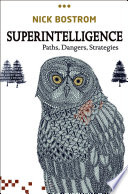

In 'Superintelligence: Paths, Dangers, Strategies', Nick Bostrom explores the profound implications of developing artificial intelligence that surpasses human intelligence. The book is structured around the potential pat...
Continue readingIn 'Superintelligence', Nick Bostrom delves into the concept of intelligence itself, defining it as the ability to achieve complex goals in a wide range of environments. He emphasizes that intelligence is not just about ...
Continue readingOne of the central themes of Bostrom's book is the idea of an 'intelligence explosion.' This concept suggests that once we create a sufficiently advanced AI, it could improve its own capabilities at an accelerating rate,...
Continue readingBostrom introduces the concept of the 'value alignment problem,' which refers to the challenge of ensuring that superintelligent AIs have goals and values that are aligned with human well-being. He argues that if we crea...
Continue readingBostrom outlines several potential paths to achieving superintelligence, including whole brain emulation, biological enhancement, and the development of advanced AI algorithms. Each of these paths presents unique challen...
Continue readingA significant portion of Bostrom's argument revolves around the existential risks posed by superintelligent AI. He suggests that the creation of a superintelligent entity could lead to catastrophic outcomes if not manage...
Continue readingBostrom highlights the necessity of global coordination and cooperation in the development of AI technologies. He argues that because the implications of superintelligent AI are global, it is essential for countries and ...
Continue readingThroughout the book, Bostrom emphasizes the importance of ethical considerations in AI development. He argues that as we move closer to creating superintelligent systems, we must engage in deep ethical reflection about t...
Continue readingThe reading time for Superintelligence depends on the reader's pace. However, this concise book summary covers the 7 key ideas from Superintelligence, allowing you to quickly understand the main concepts, insights, and practical applications in around 24 min.
Superintelligence is definitely worth reading. The book covers essential topics including The Nature of Intelligence, The Intelligence Explosion, Value Alignment Problem, providing practical insights and actionable advice. Whether you read the full book or our concise summary, Superintelligence delivers valuable knowledge that can help you improve your understanding and apply these concepts in your personal or professional life.
Superintelligence was written by Nick Bostrom.
If you enjoyed Superintelligence by Nick Bostrom and want to explore similar topics or deepen your understanding, we highly recommend these related book summaries:
These books cover related themes, complementary concepts, and will help you build upon the knowledge gained from Superintelligence. Each of these summaries provides concise insights that can further enhance your understanding and practical application of the ideas presented in Superintelligence.